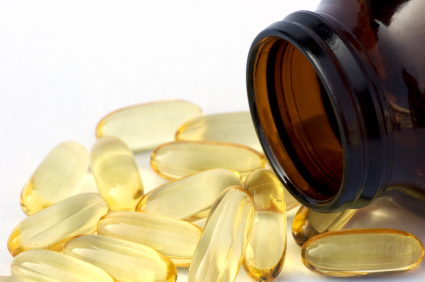Vitamin D3 Is Low In Children And Adolescents With Mania, But Supplements Help
Vitamin D3 is low in children and adolescents with mania, but taking a supplement could help. Vitamin D3, which we absorb via food and sunlight, is converted by the liver to a form called 25-OH-D. In a small study, Elif Sikoglu et al. found that children and teens with mania had lower levels of 25-OH-D in their blood compared to typically developing youth of similar ages. This deficit was associated with lower brain GABA levels measured with magnetic resonance spectroscopy. GABA dysfunction has been implicated in the manic phase of bipolar disorder. An 8-week trial of Vitamin D3 supplements significantly reduced manic symptoms and tended to increase GABA levels.
Editor’s Note: Other data have suggested that children with psychosis have low Vitamin D3, and in a recent clinical trial in adults, Vitamin D3 supplementation improved antidepressant response more than placebo. Many children in the US are Vitamin D deficient. Test them and, if necessary, treat them, especially if they have bipolar disorder.
Vitamin D3 has Positive Effects in Depressed Patients on Prozac
A recent study of patients taking fluoxetine (Prozac) for major depression found that adding 1500 IU of vitamin D3 to their treatment regimen improved their response significantly. The article was published in the Australian and New Zealand Journal of Psychiatry.
According to the Mayo Clinic:
The term “vitamin D” refers to several different forms of this vitamin. Two forms are important in humans: ergocalciferol (vitamin D2) and cholecalciferol (vitamin D3). Vitamin D2 is synthesized by plants. Vitamin D3 is synthesized by humans in the skin when it is exposed to ultraviolet B (UVB) rays from sunlight. Foods may be fortified with vitamin D2 or D3.
Editors Note: Here is another augmenting agent that could be considered for the treatment of those with residual depression. While vitamin D has not been studied directly in bipolar depression, we could ask, “Why not try it?” Other nutritional supplements in this category might be folate and N-acetylcysteine.
Vitamin D supplements are definitely indicated for the large percentage of those in the US who are vitamin D deficient. Given the data from this randomized trial, vitamin D3 could be considered in those with normal levels of vitamin D as well.



